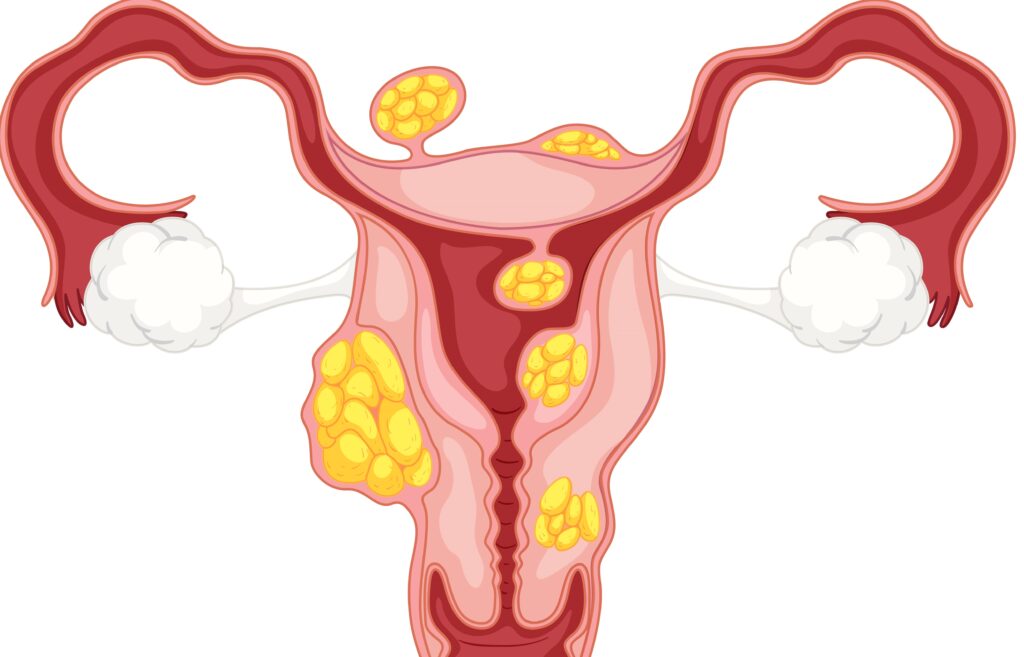Uterine Fibroids

Introduction Uterine fibroids are noncancerous growths of the uterus that often appear during childbearing years. While not typically dangerous, they can cause significant discomfort and complications. At KC Rajumultispeciality Hospital, we offer comprehensive diagnosis and treatment options for women affected by uterine fibroids, ensuring personalized care and support.
Understanding Uterine Fibroids Uterine fibroids, also known as leiomyomas or myomas, are benign tumors that develop from the muscle tissue of the uterus. They can vary in size, number, and location within the uterus, leading to diverse symptoms and health impacts. While the exact cause of fibroids is unknown, factors such as hormonal changes, genetic predisposition, and growth factors are believed to play a role.
Symptoms and Diagnosis Many women with uterine fibroids experience no symptoms, while others may suffer from heavy menstrual bleeding, prolonged periods, pelvic pain, frequent urination, constipation, and reproductive issues. At KC Rajumultispeciality Hospital, our gynecologists utilize a combination of patient history, pelvic examinations, ultrasound imaging, and MRI scans to accurately diagnose and assess the size, number, and location of fibroids.
Treatment Options Treatment for uterine fibroids is tailored to the individual’s symptoms, fibroid characteristics, and personal preferences. At KC Rajumultispeciality Hospital, we offer a range of treatment options, including:
- Medication: To manage symptoms such as heavy bleeding and pain, we may prescribe medications such as nonsteroidal anti-inflammatory drugs (NSAIDs), hormonal therapies, and GnRH agonists to shrink fibroids.
- Minimally Invasive Procedures: Techniques such as uterine artery embolization (UAE) and myomectomy can effectively treat fibroids while preserving the uterus. UAE blocks the blood supply to fibroids, causing them to shrink, while myomectomy surgically removes fibroids.
- Surgical Options: In cases where fibroids are large or cause significant symptoms, surgical removal may be necessary. Options include hysterectomy, which involves the removal of the uterus, and laparoscopic or robotic-assisted myomectomy, which is less invasive and focuses on removing the fibroids while preserving the uterus.
Lifestyle and Supportive Care In addition to medical treatments, lifestyle changes and supportive care can help manage fibroid symptoms. Our team at KC Rajumultispeciality Hospital provides guidance on diet, exercise, and stress management techniques to help alleviate symptoms and improve overall well-being.
Fertility Considerations For women with fibroids who wish to conceive, it is important to address any reproductive challenges that fibroids may pose. Our fertility specialists work closely with patients to assess and treat fibroids in a way that supports their fertility goals, offering treatments that preserve or enhance fertility whenever possible.
Follow-up Care and Monitoring Regular follow-up care is essential for monitoring fibroid growth and ensuring the effectiveness of treatment. At KC Rajumultispeciality Hospital, we provide ongoing care and support, including routine check-ups, imaging studies, and adjustments to treatment plans as needed to ensure optimal health outcomes.

